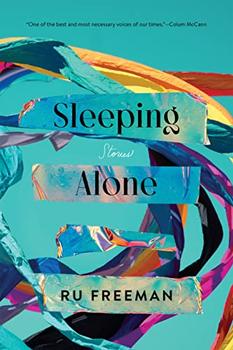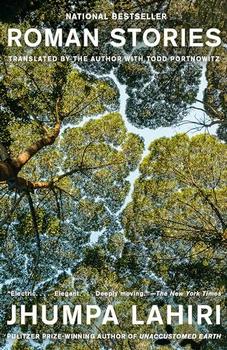Summary | Excerpt | Reviews | Beyond the book | Read-Alikes | Genres & Themes | Author Bio

Stories
by Ru FreemanIn this collection of rich and textured stories about crossing borders, both real and imagined, Sleeping Alone asks one of the fundamental questions of our times: What is the toll of feeling foreign in one's land, to others, or even to oneself?
A cast of misfits, young and old, single and coupled, even entire family units, confront startling changes wrought by difficult circumstances or harrowing choices.
These stories span the world, moving from Maine to Sri Lanka, from Dublin to Philadelphia, paying exquisite attention to the dance between the intimate details of our lives and our public selves.
Whether Ru Freeman, author of the novel On Sal Mal Lane, is capturing secrets kept by siblings in Sri Lanka, or the life of itinerants in New York City, she renders the nuances of her characters' lives with real sensitivity, and imbues them with surprising dignity and grace.
It has often been said that the short story is a love affair while the novel is a marriage. You enter a short story and then you leave. You attach to the characters and their lives and then you dispose of them. But if short stories are about the weight of the human experience, then Freeman's collection is a great contribution to the genre. Born in Sri Lanka, she deftly handles elements of culture threaded through her African American, Caucasian, Irish and Sri Lankan protagonists. While reading, I had the sensation that someone was whispering in my ear about the people they met all over the world, the ones they were unable to forget...continued
Full Review
(878 words)
This review is available to non-members for a limited time. For full access,
become a member today.
(Reviewed by Valerie Morales).
 Ru Freeman uses the swastika symbol outside of its prevailing cultural narrative in the landscape of Sleeping Alone's "The Wake," a story about a cult leader who believes he is an incarnation of Christ. He spends his last days in a modest New York City apartment with an ordinary family, in a room called "the Swastika Room." Freeman chooses to represent the swastika here as a symbol consistent with its religious roots, which may come as a jolt, as it is mostly known as a sign of hate used by the Nazis.
Ru Freeman uses the swastika symbol outside of its prevailing cultural narrative in the landscape of Sleeping Alone's "The Wake," a story about a cult leader who believes he is an incarnation of Christ. He spends his last days in a modest New York City apartment with an ordinary family, in a room called "the Swastika Room." Freeman chooses to represent the swastika here as a symbol consistent with its religious roots, which may come as a jolt, as it is mostly known as a sign of hate used by the Nazis.
Centuries before Adolf Hitler's brutal reign, the swastika was already a popular symbol. Versions of it have been found stamped on Asian and European pottery, vases, textiles and sculptures. It has also been used in artwork by cultures ...
This "beyond the book" feature is available to non-members for a limited time. Join today for full access.

If you liked Sleeping Alone, try these:

by Jhumpa Lahiri
Published 2024
The first short story collection by the Pulitzer Prize–winning author and master of the form since her number one New York Times best seller Unaccustomed Earth • Rome—metropolis and monument, suspended between past and future, multi-faceted and metaphysical—is the protagonist, not the setting, of these nine stories

by Uche Okonkwo
Published 2024
A searing, unflinching collection of stories set in Nigeria that explores themes of community expectations, familial strife, and the struggle for survival.
These are not books, lumps of lifeless paper, but minds alive on the shelves
Click Here to find out who said this, as well as discovering other famous literary quotes!